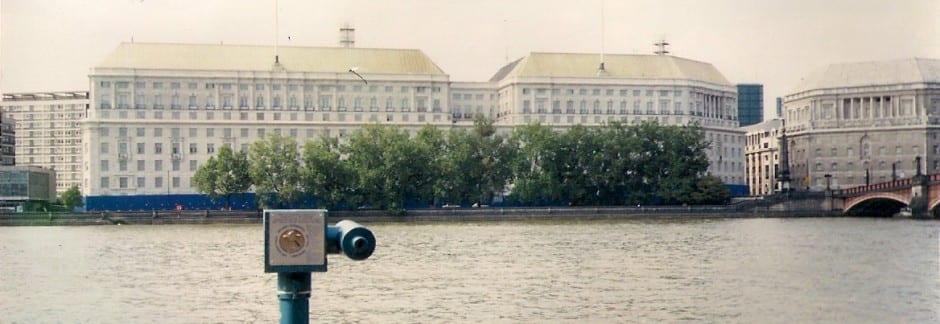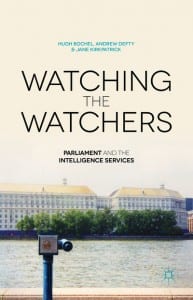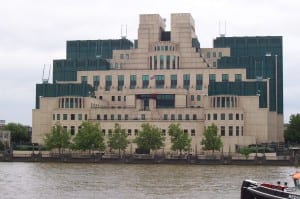 The publication of an article in The Financial Times by the new head of GCHQ, Robert Hannigan, has prompted a mixed response. While some have offered a cautious welcome to what may be seen as a new and genuine attempt to engage in an important public debate, others have been more sceptical, viewing it as little more than a PR exercise on the part of GCHQ.
The publication of an article in The Financial Times by the new head of GCHQ, Robert Hannigan, has prompted a mixed response. While some have offered a cautious welcome to what may be seen as a new and genuine attempt to engage in an important public debate, others have been more sceptical, viewing it as little more than a PR exercise on the part of GCHQ.
The article was clearly carefully planned, UK intelligence agency chiefs do not make public statements without careful consideration, both of the content and the audience. Hannigan’s choice of The Financial Times was a clearly designed to enhance the impact of his message amongst the business community both here and more pointedly across the Atlantic. Public statements by British intelligence agency heads are not uncommon now, although they are still rare enough to attract widespread media attention. The first public statement by the Director-General of MI5 took place in 1994 when Stella Rimington delivered the Richard Dimbleby lecture on national television. Although the heads of MI6 and GCHQ were rather slow to follow MI5’s lead, with the first public speeches by serving heads of both agencies taking place in 2010, these occasional lectures have now become almost routine. Nevertheless, such events have generally involved the presentation of carefully prepared speeches, in front of carefully selected audiences with very little opportunity for interaction. Moreover, the first public appearance of the intelligence and security agency heads before the Parliamentary Intelligence and Security Committee earlier this year was as carefully choreographed as any of their previous public outings.
If Robert Hannigan is genuinely committed to entering the public debate about privacy he must be prepared to debate, and if he really wants to break with tradition, he might consider appearing before one of the other parliamentary committees whose work overlaps with that of the Intelligence and Security Committee. As we show in our book, Watching the Watchers, in recent years a number of parliamentary select committees have sought to take evidence from the intelligence and security agencies, most notably the Home and Foreign Affairs committees and the Joint Committee on Human Rights. However, access has consistently been denied on the grounds that the ISC has sole responsibility for scrutiny in this area. This has in the past been the source of considerable tension between the ISC and a number of other committees, but it has done little to discourage the select committees from seeking to examine the role of intelligence agencies when their activities have encroached on existing inquiries, such as those on human rights or counter-terrorism policy. Moreover, while the ISC has jealously guarded its turf in this area, there is some evidence that the agencies have begun to engage with other parliamentary committees albeit on an informal basis. A number of committees have had briefings from the intelligence agencies with the proviso that these would not be entered as formal evidence and transcripts would not be published. Although interestingly committees have differed in their response to this, with the Joint Committee on Human Rights, for example, declining the offer of a briefing if it was not to be on the record.
Indeed, it is something of a myth to continue to assert that the intelligence and security agencies do not have a public profile or that they don’t already seek to influence public debate. While statements in the press, like Hannigan’s, are rare, the British intelligence and security agencies have a very prominent public profile, from inviting Judi Dench, who played ‘C’ in the Bond movies, to MI6 headquarters for lunch to unveiling an enormous poppy in the centre of the GCHQ ‘doughnut’. The agencies have also enjoyed a long and close relationship with the British media. The agencies, to some extent owe their very existence to a largely manufactured fear of German invasion whipped up in the British press at the start of the last century. More recently, in 2004 the ISC conducted an inquiry into the agencies’ relationship with the media which revealed that a number of media outlets have journalists ‘accredited’ to the agencies, and receive briefings ‘about matters relevant to the Services.’ When parliamentarians complain, as they often did in interviews for our research, that the intelligence agencies are not prepared to speak to Parliament, they often add ‘but they’re quite happy to talk to journalists.’
However, maintaining a public profile is not the same as being subject to public scrutiny, and while the agencies have embraced the former they have consistently avoided the latter. To be sure, an appearance before another select committee would be considerably more challenging than the gentle public ‘grilling’ the agency heads received from the ISC. Moreover, there would inevitably be points at which they would need to decline to answer certain questions for fear of revealing sources and methods, which would lead to inevitable criticisms. There would, however, be little threat to national security if the sessions were carefully handled. Leaving aside the farcical time delay in the ISC session, it is in reality highly unlikely that senior staff of the intelligence and security agencies would inadvertently blurt out vital state secrets. Nor would this mean, as some have suggested, that they would not be able to say anything. If Hannigan were to appear, for example, before the Home Affairs Committee, which is currently conducting an inquiry into the operation of the Regulation of Investigatory Powers Act, he could without revealing any operational details, provide information on GCHQ policies with regard to interception and offer a vital perspective on whether GCHQ feel the Act is fit for purpose and whether or how it might be amended. If there is to be new legislation, and many would argue it is necessary, it will be debated in Parliament, so it might be helpful if parliamentarians knew exactly what they were being asked to approve.
Given that it has taken twenty years for the agency heads to appear in public before a parliamentary committee, stepping out from the comforting gaze of the ISC might seem highly unlikely. However, Hannigan may be prepared to take the plunge. Unlike his predecessor he is a Whitehall man, not an agency insider. He has considerable personal experience of appearing before a range of parliamentary select committees from his time in various Whitehall departments, including the Public Accounts Committee, the Northern Ireland Affairs Committee and the Defence Committee. His experience of working with senior politicians, particularly in the Cabinet Office, may mean that he is also more likely to have an appreciation of the dynamics of political debate. Given current concerns it may not be a comfortable experience, but if Hannigan is as certain as he seems that GCHQ’s approach is both necessary and proportionate then he should be prepared to subject his argument to detailed parliamentary scrutiny.
This post first appeared on the Political Studies Association blog. Our work on the intelligence services and the select committees was published in a recent article in Parliamentary Affairs.


